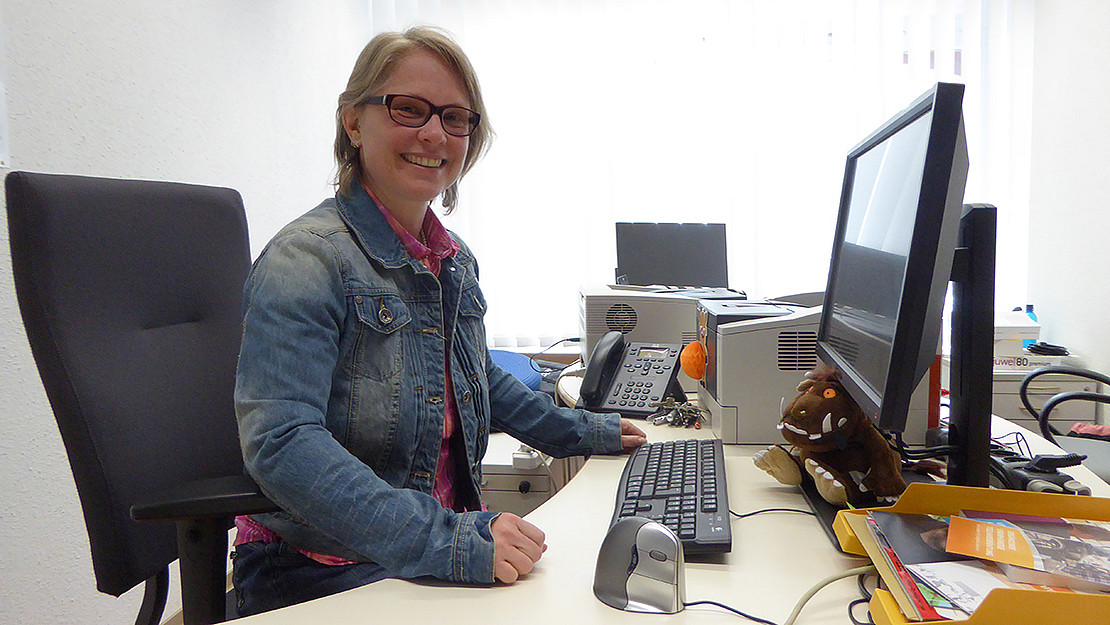This page contains automatically translated content.
Lenora Micah Jordan: Effects of peer counseling on counselors?!
 Image: Eva Krämer
Image: Eva KrämerIn my PhD project I am dealing with the counseling method "Peer Counseling"; this is professional counseling by and for people with disabilities and their relatives. This approach has been used in Germany since the 1980s; with the nationwide introduction of the "Ergänzende Unabhängige Teilhabeberatung" (EUTB) last year with more than 500 counseling centers, peer counseling is gaining new momentum.
Unlike psychotherapy and coaching, peer counseling relies, among other things, on - disability-specific - experiential knowledge and similar lifeworld experience of counselors and those seeking advice. What does this quality of closeness do to the counselors? Can the confrontation with one's own impairment or illness be helpful or does it rather have a destabilizing effect? I would like to find out because it is highly relevant with regard to the continuation of the EUTB offer from 2021.
Due to a chronic illness, I myself was only able to complete my diploma studies part-time. During my master's studies, I worked on the evaluation of a peer counseling model project and got to know peer counseling. The nationwide "PROMI" project (doctorate included), in which the University of Kassel participates, enables me to do my own research in this field. In PROMI, the Federal Ministry of Labor and Social Affairs finances part of the personnel costs of severely disabled doctoral students from the so-called compensation fund. All employers who allocate less than the specified five percent of their positions to severely disabled persons pay into this fund.
In the meantime, I myself have completed the training to become a peer counselor and work as a trainer for the counselors in the EUTB offerings. It's exciting to see how the counseling work gives people who often have to fight for recognition - such as people with learning difficulties or mental illness - enormous self-confidence.
Text: Eva Krämer